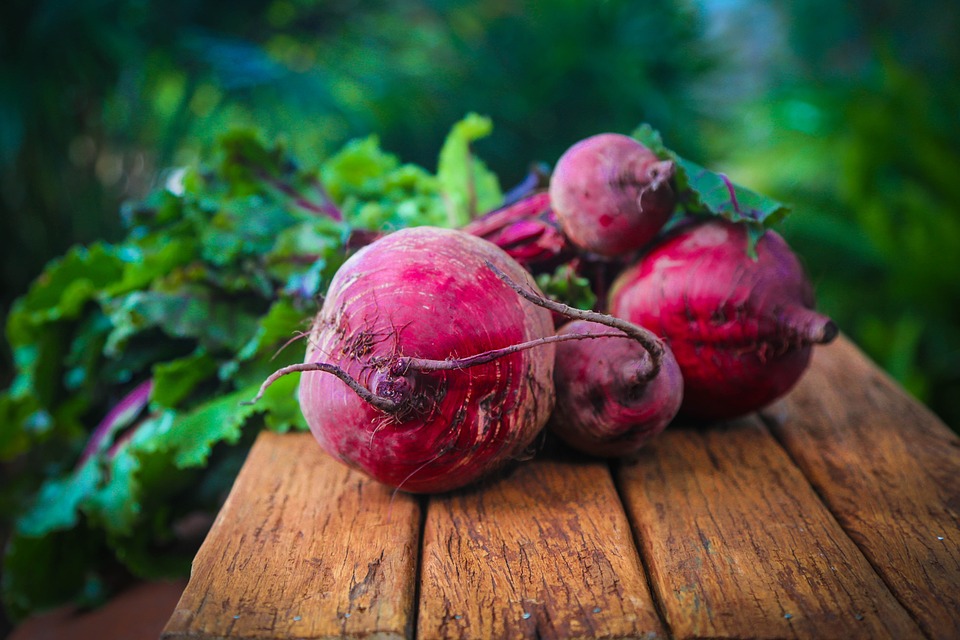Matt Steinacher | Naturopath + Nutritionist
Beetroot juice is a rich natural source of Nitrate that may be converted to nitrite and then further metabolised to produce Nitric Oxide in the body. Nitric oxide is thought to be a useful for exercise and performance however the literature on nitric oxide’s use as an ergogenic is somewhat unclear at this point. With this in mind, there is some important information available for athletes to take note of when supplementing. If you are interested in trying Beetroot in your training or to help fuel your next race, the below information is a useful guide to follow in order to best maximise your chances of finishing first.
- No Harm. In all studies beetroot juice has been proven safe, well tolerated through digestion, and very unlikely to do any harm to health or performance. Beetroot is a legal supplement in sport.
- How much? Beetroot juice supplements are best taken on an empty stomach. Furthermore, because nitrate needs to be reduced through bacteria in your saliva it is recommended to NOT consume chewing gum or use a mouthwash went supplementing. You’ll need around 10-12mmols (620mg-750mg) (Hoon et al., 2014) of nitrate for 6 days with your last dose around 3hr prior to competition (ie. A few minutes before your last big meal prior to an event). Nitrate content of commercial products will vary greatly, please check with your manufacturer, brand or health professional for exact amounts for best results.
- Who for? Although the mechanism of action is unknown, beetroot seems to be most useful in hypoxic states or where oxygen availability to the cell (like muscle) is compromised. Most research points towards its use for events that rely heavily on the anaerobic energy system (Lowings, Shannon, Deighton, Matu, & Barlow, 2017). There is also reasonable research supporting the concept that highly trained athletes may not benefit from beetroot supplementation as well as the “weekend warrior” due to training adaptation, however this may not always be accurate. At least one well designed study shows significant benefit to highly trained athletes during a cycling time trial (Lansley et al., 2011).
- The Ending. A number of studies found that beetroot supplements were most useful during repeated bouts of high intensity exercise or towards the end of a high intensity event (Bond, Morton, & Braakhuis, 2012). This may be particularly useful for those wanting benefit towards the end of a race and after a BIG finish.
- Some athletes benefit and some don’t. As mentioned this may be due to an individual’s ability to metabolise Nitric Oxide and or individual’s fitness level. After initial ingestion, entero-salivery bacteria are required to reduce only a small percentage of Nitrate to Nitrite, which is then metabolised to Nitric Oxide. Could it be that nourishing your microbiome is a key aspect of this process? More research is required in this area.
- Trial it. As with everything you need to do your own trials during training or a replicated race environment. There may be individual changes required to timing and dosage for the best outcome to be achieved.
Good luck. Hopefully you’ll be one of those that Beetroot supplementation helps most. If you are interested in more information or would like to formulate a supplement plan for your own exercise, sport or race please contact me via email at matt@vivehealth.com.au
References
Bond, H., Morton, L., & Braakhuis, A. J. (2012). Dietary nitrate supplementation improves rowing performance in well-trained rowers. International Journal of Sport Nutrition and Exercise Metabolism. https://doi.org/10.1123/ijsnem.22.4.251
Hoon, M. W., Jones, A. M., Johnson, N. A., Blackwell, J. R., Broad, E. M., Lundy, B., … Burke, L. M. (2014). The effect of variable doses of inorganic nitrate-rich beetroot juice on simulated 2000-m rowing performance in trained athletes. International Journal of Sports Physiology and Performance. https://doi.org/10.1123/IJSPP.2013-0207
Lansley, K. E., Winyard, P. G., Bailey, S. J., Vanhatalo, A., Wilkerson, D. P., Blackwell, J. R., … Jones, A. M. (2011). Acute dietary nitrate supplementation improves cycling time trial performance. Medicine and Science in Sports and Exercise. https://doi.org/10.1249/MSS.0b013e31821597b4
Lowings, S., Shannon, O. M., Deighton, K., Matu, J., & Barlow, M. J. (2017). Effect of dietary nitrate supplementation on swimming performance in trained swimmers. International Journal of Sport Nutrition and Exercise Metabolism. https://doi.org/10.1123/ijsnem.2016-0251

